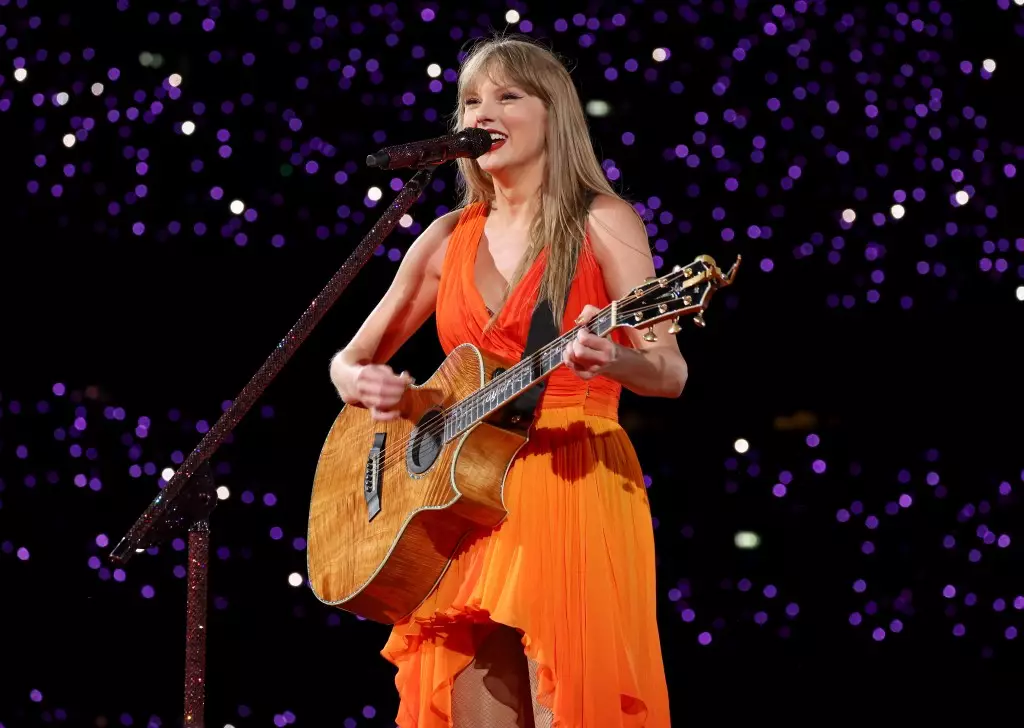This summer, Taylor Swift’s concerts at Wembley Stadium in London sparked a significant amount of public discourse, not just due to the music itself, but also because of the extraordinary security measures implemented during her performances. Reports from The Times of London revealed that this heightened police presence stemmed from pressure exerted by prominent figures in the UK government, a decision that raised eyebrows and ignited a debate about celebrity culture and public resources.
Swift’s highly anticipated Eras tour quickly became a focal point of political interest, especially after revelations of government officials receiving complimentary tickets to her shows. Contrasting the usual protocols surrounding public security, which typically reserve extraordinary protective measures for members of the royal family or high-ranking cabinet ministers, Taylor Swift found herself at the crux of a peculiar intersection of fame and politics.
The specific impetus for such a drastic measure appeared to be a confluence of events leading to an alarming sense of insecurity surrounding her performances. Following a thwarted suicide bombing plot in Vienna, which left Swift’s mother and manager, Andrea, contemplating the cancellation of the London shows, UK officials—most notably Home Secretary Yvette Cooper and Mayor Sadiq Khan—took a proactive stance. They persuaded the Metropolitan Police to extend their resources to ensure Swift’s safety, emphasizing the potential economic repercussions of any disruption to her performances.
The use of taxpayer-funded security for a pop star, however, elicited criticism. Critics questioned whether public funds should be allocated to protect a celebrity instead of more pressing societal needs. This event highlighted an uncomfortable reality where the demands of entertainment and governance collide, with cooperative language exchanged between state officials and Swift’s management only deepening the controversy.
One cannot overlook the substantial financial implications associated with Swift’s concerts. The Eras tour reportedly generated nearly £1 billion ($1.3 billion) in economic activity in the UK, indicating that major events often wield considerable influence over local economies. Policy makers, recognizing the potential fallout from any cancellation, framed their involvement as a necessary investment in both public safety and economic vitality.
Yet, such monetary arguments raise further questions about values and priorities. When does the economic benefit of celebrity events justify diverting security resources from other public safety concerns? The juxtaposition of elite entertainment and ordinary public service underscores a disparity that many find troubling.
As this situation unfolded, it offered a glimpse into the complex relationship between celebrity culture and governance. The reliance on prominent figures for boosting economic activity is evident in today’s society, yet it raises ethical concerns about how celebrity status might overshadow pressing issues that affect countless lives.
In examining Taylor Swift’s Wembley concerts, it becomes clear that the intersection of fame and governmental responsibility creates an unforeseen conundrum. As this controversial security provision serves as a case study, it compels us to critically analyze how society allocates resources and values the worth of an individual in the grand scheme of public life. Swift, for all her artistry, becomes a symbol of a broader conversation about power, government priorities, and the nuances of modern celebrity—questions that will linger long after the final note fades from Wembley Stadium.


Leave a Reply